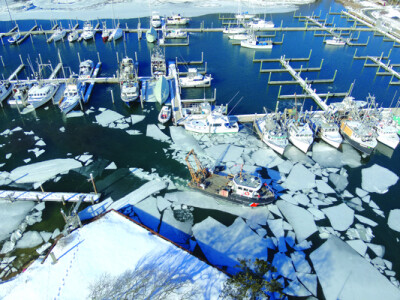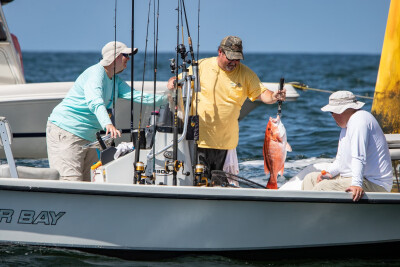On a morning in early spring, at a dock alongside a popular Central Florida boardwalk, Jason DeLaCruz helps his crew unload 11,700 pounds of grouper, red snapper, and bycatch from the boat The Blackjack. The six men work quickly to grade the day's catch, plopping each fish into sturdy cardboard vats layered with ice. They have good reason to hurry: They'll need to jump through several extra hoops—more than most operations—before sending it all to market.
That's because, in addition to running his Madeira Beach seafood operation, DeLaCruz is the executive director of a nonprofit conservation agency called Gulf Wild. By affixing a data tag onto the gill of each fish, Gulf Wild captains provide consumers with details about the location of the catch, which boat pulled it in and with what gear, and even the quality of the water it swam in. The information is uploaded into an online "Transparensea" database, which handlers then update along each step of the fish's journey to the dinner table.
That seems like great lengths to go for some local grouper. But for Gulf Wild's 50 or so boat captains, the extra steps are worth it, part of a growing effort to combat seafood fraud.






